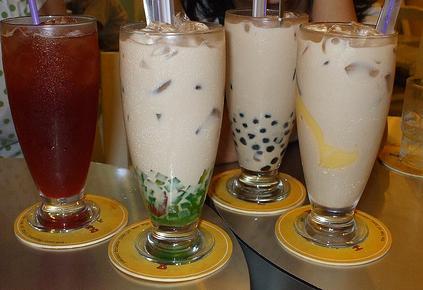Many ingredients to make the “bubble tea” widely sold in the capital city have been found to have dubious or unclear origins, the Hanoi market watchdog agency has said.
Officers conducted checks on shops selling the ingredients on Hang Buon Street and in Dong Xuan market, following news that Singapore has recalled several samples of the tapioca starch balls used in the “bubble teas”.
Singapore's Agri-Food and Veterinary Authority (AVA) has so far recalled 15 types of tapioca starch balls made in Taiwan that are used in the preparation of bubble tea beverages, according to an announcement posted on its website.
The products were detected to have maleic acid, a banned food additive in Singapore which can cause kidney failure if consumed in high levels, according to AVA.
Bubble milk tea, also known as pearl milk tea, is a Taiwanese tea-based drink that was invented in tea shops in Taichung, Taiwan, during the 1980s.
Most bubble tea recipes contain a tea base mixed with fruit or milk, and most are served with small chewy tapioca balls, commonly called "pearls".
In Vietnam, meanwhile, the National Institute for Food Control has taken samples of the tapioca starch balls for tests.
However, checks by the Hanoi market management officers found that not only the balls, but other ingredients to make the beverage as well, have been smuggled into Vietnam.
The products do not have any papers to prove their quality and origin, officers said.
For instance, the powder milk to make the bubble tea is stored in plastic bags without labels or any information regarding their expiry date and manufacturer.
Other ingredients bear labels in Chinese but do not have the required sub-labels in Vietnamese with information about the importers or quality stamps, they added.
This summer, Hanoi youths have also welcomed a new kind of beverage -- "tra nom,” or “humid teas”, which are advertised as made in Thailand.
However, similar to the case of pearl milk teas, the ingredients to make this new type of tea have also been found to be of unknown origins.
This is not the first time the food safety alarm bell has been sounded over a widely-consumed beverage.
In April, it was revealed that lemon tea, a trendy soft drink among local youths, was actually made with coloring, flavoring, and water, without a single slice of lime.




















































